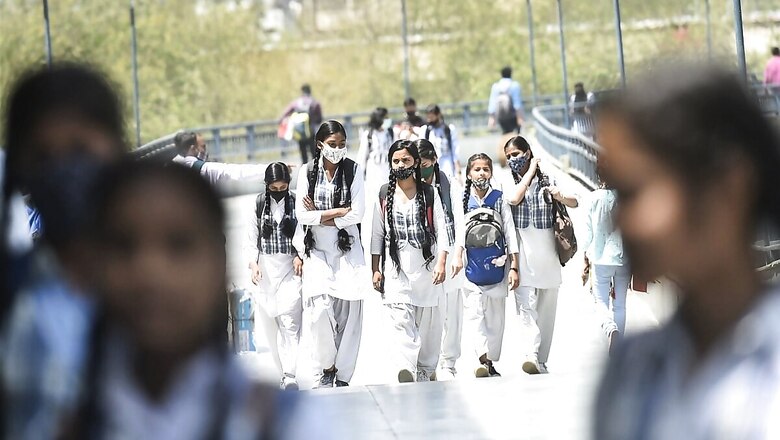
views
Notwithstanding its righteous intent, the framework for regulating fees in private schools has failed to deliver. As India prepares to embrace the grand vision of the National Education Policy 2020 (NEP), it is the right time for a thorough examination of the fee regulation laws enforced by states across India.
COVID-19 pandemic exposed the inherent flaws in the approach to fee regulation. Schools struggled to manage their finances, courtesy the over-zealous authorities seeking to curb the ability of schools to charge regular fees.
With all its noble intent, the fee regulation committees/authority (FRC) has become a shining example of ‘law of unintended consequences’. A great cause has ended up becoming a lost cause. There is no disagreement that profiteering should not be allowed in education. However, the government or the FRC should not encroach upon the autonomy of private, unaided educational establishments in trying to regulate fee.
Profiteering vs Saving for a Rainy Day
Unfortunately, the way the FRC regime has unfolded, schools are ending up being micro-managed by the government. It is surprising that to control fees and cap expenditure, many private unaided schools have been asked to stop certain activities like teacher training programmes. In certain instances, schools have also been asked to discontinue annual service/maintenance for water purifiers—a basic amenity.
Controlling profiteering in educational institutions is appreciated and desirable but for FRC to interfere in the running and management of schools, to curb what they believe is not a necessary expenditure, is surely not the objective of law. Even the Supreme Court has drawn a distinction between profit-making activity or profiteering and an organisation having a reasonable surplus for its activities. Therefore, there is a clear case for re-imagining and relooking at the FRC regime by limiting the scope of FRC’s intervention in the affairs and management of private schools.
The COVID-19 pandemic was an insult to injury. Since FRC clampdown on the fee structure, private schools were not left with sufficient reserves for a rainy day. An unwanted fallout of FRC in COVID times was when some of the schools had to cut salaries. Since fee regulation authority or committee is a state governing body, the autonomy of the body dictates the quality and the outcome of the level of education a state can offer. There is no denying that education is a social enterprise and cannot be a profit-making entity, however, the service it provides would be dependent on the means to support the quality delivery to its beneficiaries.
Need to Empower Schools
The NEP aims at revamping all aspects of the education structure including regulation and governance to create a new system of education aligned to the aspirational goals of 21st century. In order to achieve such policy objective, schools would require the freedom to invest in new technology, faculty training, research and development and encourage cross-country exchange. Thus, in order to provide latest quality services and to retain the talent, it is imperative to allow education establishments to be able to invest and progress in the learning and growth of individuals at school level and onwards. The objective of NEP will not be achieved with such stringent measures which infringe on the autonomy of institutions.
Under the leadership of Prime Minister Narendra Modi, India has introduced many measures to support overall development in various sectors and opening them for foreign markets to invest in India.
One such prime example is Gujarat positioning itself on the world map with initiatives like GIFT City and Special Investment Region, by rolling out the red carpet for foreign capital. It is critical that the social infrastructure in the state is at par with or better than other states for expats who may choose to relocate to Gujarat. To be fair Gujarat is not the only state with a legal regime to regulate fees in private schools. However, the ambit of this regime has been invasive and counterproductive.
With their autonomy curtailed, educational establishment will have limited ability and inclination to invest in the uplift of academic and other standards and therefore face the risk of failing to service the demands of an international standard. Even the Prime Minister’s vision to prepare Indian students for global challenges in the 21st century through competency based assessments like Programme for International Student Assessment (PISA) will be severely compromised if schools are not empowered enough.
And in the haze of issues nobody discusses the freedom of choice of the parent. If a parent wishes to invest in her child’s education by voluntarily agreeing to pay the fee charged by the private school for regular education and other allied activities, then such decision must be respected. If I will not get the desired quality from the school, I would move my child out of the school. Similarly, as a teacher, I would rather apply to a school which gives me opportunity to grow by exposure to training and continuous professional development and more money of course!
Revisiting the FRC would be a good beginning.
Read all the Latest News, Breaking News and Coronavirus News here.




















Comments
0 comment